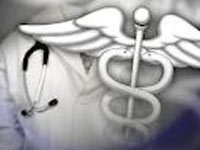
When politicians train to be politicians, one of the first lessons they learn is about the use of hyperbole, the art of using obvious and intentional exaggeration to make a point. It is a political tool that Bahamian politicians are very familiar with and use with great frequency (Full disclosure: the media profession is no novice when it comes to the art either)!
With true hyperbole, however, the extravagant statements are not intended to be taken literally; they are intended to make a point.
Trouble is, listening ears often miss the point, and instead come away believing the exaggeration. While talking heads, on the other hand, sometimes buy into their own hype, and use intentional exaggeration to get away with spreading outright lies. Too much hyperbole can really create one messy affair.
Needless to say, one has to be astute to weed through the mess. Let us take, for example, the Stem Cell Research and Therapy Bill, currently being debated in the House of Assembly, which has been painted as “revolutionary” by its proponents.
Much has been said about the benefits that stem cell research will bring to the Bahamas: $100 million annually, new jobs, spillover effects on all areas of the economy, lead scientists who will relocate to the Bahamas and create institutions and centres of excellence, and new medical treatments for Bahamians. The impressive list goes on.
The way in which this adventure is being trumped up has certainly made me weary. For one simple reason: Our politicians have a knack for trumpeting revolutionary projects that never live up to their promise. And I would hate for us to venture into another one of those limp experiments at the expense of matters of real national importance.
Let us not forget, a few years ago, telemedicine was the revolutionary technology that was supposed to transform health care in the Bahamas, “bridging the islands of the Bahamas medically”. The Bahamas was supposed to become a nerve centre for the Caribbean, using the success of connecting the Family Islands as the launch pad for a worldwide breakthrough in the developing world.
The Free National Movement government launched a tele-radiology pilot project in two community-based clinics: The South Beach Clinic in New Providence and Eight-Mile Rock Clinic in Grand Bahama. Radiologists at Princess Margaret Hospital or Rand Memorial Hospital consulted regularly with technicians and patients at the two clinics. They used a Picture Archiving and Communication System (PACS) to store, share and archive imaging data.



